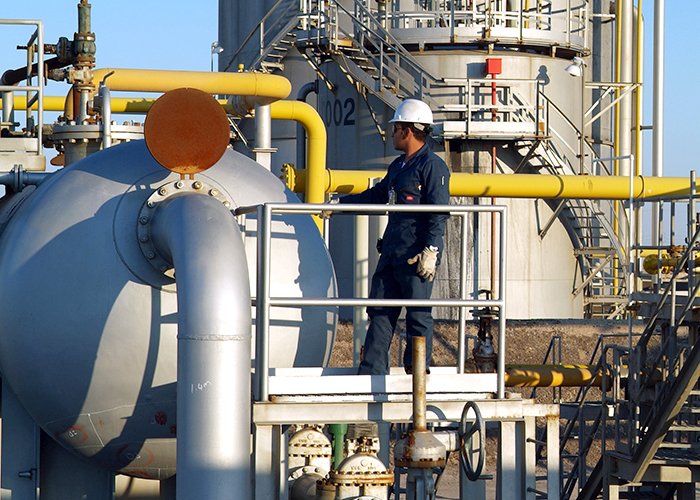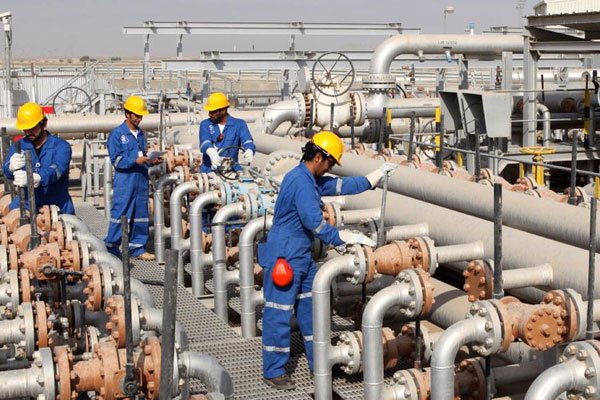The Kuwait crude oil price rose by 31 cents to settle at $65.24 per barrel, according to the latest report from Kuwait Petroleum Corporation (KPC). The increase comes amid ongoing changes in global oil demand and supply, and it signals cautious optimism in the international energy market.
Let’s explore what this rise means for Kuwait, oil investors, and the wider global economy.
What is driving the Kuwait crude oil price up?
Several key factors contributed to the rise in Kuwait crude oil price:

- Stabilization in global oil demand as economies continue to recover post-COVID
- Tensions in oil-producing regions, especially in the Middle East
- Decisions by OPEC+ to manage output levels and prevent oversupply
- Market speculation and shifts in investor sentiment
Experts say this modest price increase shows that the oil market is trying to balance between supply security and demand uncertainty.
A closer look at Kuwait Petroleum Corporation
Kuwait Petroleum Corporation (KPC) is the state-owned company responsible for overseeing Kuwait’s oil production, refining, marketing, and export. The company plays a vital role in the country’s economy, with oil revenues making up nearly 90% of government income.
KPC’s announcement of the 31-cent increase in crude oil price was closely watched by energy analysts, as it reflects not just Kuwait’s internal oil production strategy, but also wider regional and global trends.
How does the price compare globally?

While Kuwait crude oil price hit $65.24, prices for other benchmarks like Brent crude and West Texas Intermediate (WTI) have also seen similar upward trends.
- Brent crude, the global benchmark, recently moved above $75 per barrel
- WTI, mainly used in the US market, has hovered near $70
These changes indicate a synchronized rise in oil prices worldwide, although Kuwait’s pricing remains slightly lower due to differences in quality and grade.
What this means for Kuwait’s economy
A higher Kuwait crude oil price is good news for the country’s economy. Here’s why:
- Increased revenue: With oil making up the bulk of Kuwait’s exports, even a small price rise can lead to a large jump in income
- Budget relief: The government can better manage its fiscal plans and reduce budget deficits
- Investor confidence: A stable or rising oil price attracts more investment into Kuwait’s energy and infrastructure sectors
However, experts also warn against overdependence on oil, encouraging diversification for long-term sustainability.
Impact on the global oil market
The shift in Kuwait crude oil price contributes to a broader trend in global oil dynamics. Other countries watch Kuwait’s movements carefully, as it’s a respected member of OPEC and has historically played a stabilizing role in the oil market.
Here’s how the global market may respond:
- Refiners may adjust contracts based on expected price fluctuations
- Importing countries might revise their energy bills and strategic reserves
- Traders and speculators could react by buying or selling based on future price expectations
This 31-cent rise may seem small, but in oil markets, such movements often have wide-reaching ripple effects.
What analysts are saying
Energy analysts and economists see this development as a mix of opportunity and caution. According to reports:
- Some believe that prices could climb further, especially if global demand increases over the summer travel months
- Others worry about volatility, especially if geopolitical tensions or inflation affect oil-importing countries
Most agree that oil prices are currently in a “watch and wait” zone, where any new political or economic news could cause sudden changes.
What could happen next?
Here are a few scenarios for the Kuwait crude oil price in the coming weeks:
- Price may rise further
If OPEC+ continues to manage supply strictly and demand increases in China and the US, prices could cross $66 or even $67 per barrel. - Price could stabilize
If demand remains steady and there are no major geopolitical shocks, prices might hold at current levels. - Price might drop
In case of a global slowdown, or if major oil-producing countries increase output unexpectedly, Kuwait’s crude oil could fall back below $65.
Investors and policymakers will be watching these indicators closely.
Kuwait’s energy strategy moving forward

In response to market conditions, Kuwait has been working on modernizing its energy sector. Some of the major steps include:
- Increasing refining capacity through new projects like the Al-Zour Refinery
- Investing in cleaner fuel technologies to meet international environmental standards
- Exploring renewable energy options, including solar power, to reduce reliance on crude exports
These efforts aim to prepare Kuwait for a future where oil might not always be the dominant source of national income.
What this means for ordinary people
While crude oil prices mainly affect governments and large corporations, they can also influence ordinary people:
- Fuel prices at petrol stations may rise or fall depending on the global oil trend
- Inflation may be affected as transportation and goods become costlier or cheaper
- Job creation in the oil and gas sector could increase if oil prices remain stable or grow
For Kuwaitis and residents in the Gulf region, oil price news is often a reflection of future economic plans and public services.
Final thoughts
The recent 31-cent rise in Kuwait crude oil price to $65.24 per barrel may not be dramatic, but it shows signs of recovery and resilience in the energy market. With continued global shifts and efforts toward sustainability, the coming months will be critical in determining whether oil prices can maintain this momentum.
Kuwait’s role in the international oil landscape remains strong, and any change in its pricing strategy can influence both regional politics and global trade. Whether you’re an investor, policymaker, or consumer, it’s worth paying attention to where these prices head next.
Read More: Jazeera Airways Budapest Flight Takes Off, Making History for Kuwait













